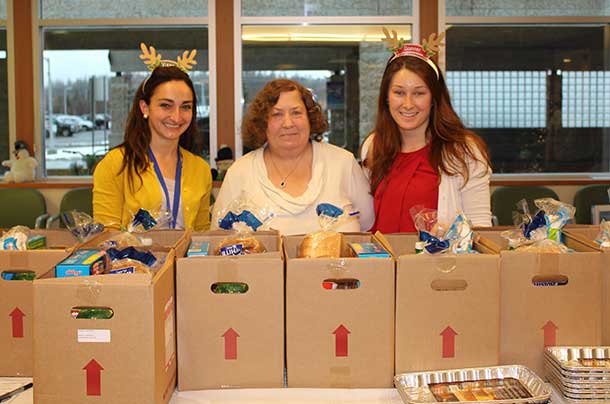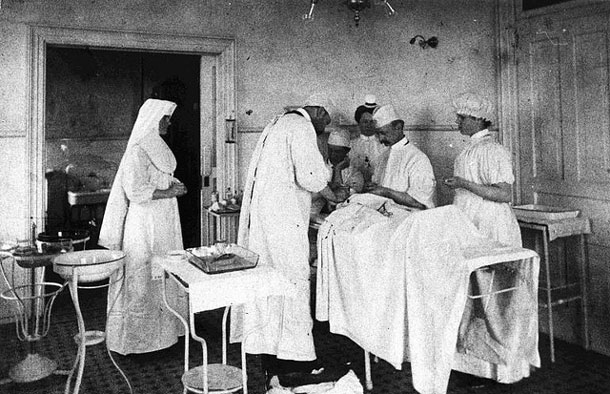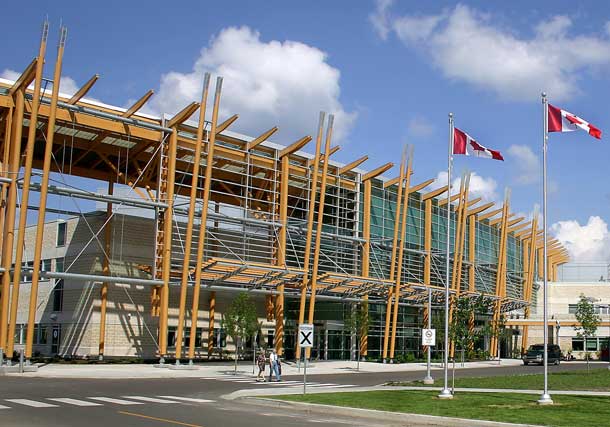

THUNDER BAY – Tis’ the season to be thankful for our health and to help others sustain their health as well. Thunder Bay Regional Health Sciences Centre’s (TBRHSC) Renal Services is putting in the extra effort this holiday season to put the health of their patients first with their inaugural ‘Christmas Hamper Giveaway’.
The Renal Services staff spend a lot of time getting to know their patients – particularly the 155 patients with end-stage kidney disease who require dialysis 3 times each week. Therefore, the staff know that many of their dialysis patients require heavily restrictive diets to maintain their health. They are also aware that some patients experience financial hardships that make the lifestyle changes required for good health on dialysis particularly challenging.
“My colleague Michelle Lawrence and I meet with our patients regularly to talk about the dietary changes necessary to live well on dialysis, which are extensive and often counterintuitive. For example, some patients on dialysis can’t have potatoes because of the amount of potassium in them. At times, it can feel like our job is to tell people what not to eat. These food hampers are a great way to show people what they can eat. It’s also a way to help them put theory into practice.” says Holly Freill, Registered Clinical Dietitian with Renal Services.
Freill spearheaded this initiative with the help of the entire interdisciplinary team. They wanted to help their patients over the holiday season where their restrictive diets can impinge on the holiday festivities. “Most people don’t know just how restrictive these diets are. Whether it’s a food hamper or a Christmas dinner prepared by a family member, foods served during the holiday season often don’t comply with the patient’s diet. So this is a good opportunity for us to help provide a holiday meal that reinforces the education we provide.”
After weeks of ‘flyer-shopping’ and sourcing out local grocery stores for renal-friendly foods, Freill was able to put together enough hampers for all of their dialysis patients. She added, “We could not have done this without the help of many of the Renal Services staff (and their families), and support from the Renal Patient Care Fund through the Health Sciences Foundation.”
Each Christmas hamper is worth approximately $20 and contains enough food items to make three recipes that are safe for dialysis patients to eat and are easy to make at home. Daily food items like Rice Krispies, a milk alternate (rice milk), white bread (whole wheat has too much phosphorous for this diet), a whole chicken, and low sodium canned vegetables are included to make roasted chicken, gravy, and rice krispie squares for dessert. The recipes for the meals are also included.
Debbie Sohlman, a renal patient at TBRHSC, was surprised and excited to receive the hamper. “It is a nice surprise for me, especially so close to Christmas. I am going to try these meals and report back [to my dietitian and care team] after.”
While items in the hamper are a great gesture, including food and a roasting pan, the best part about the hamper is the education and experience that will be provided. Overall, the recipes and food are geared toward meeting the patients where they’re at. The hampers are simple and planned so that patients will be successful in making a healthy and delicious meal. In turn, this will help to encourage them to continue learning about healthy food choices and cooking.



